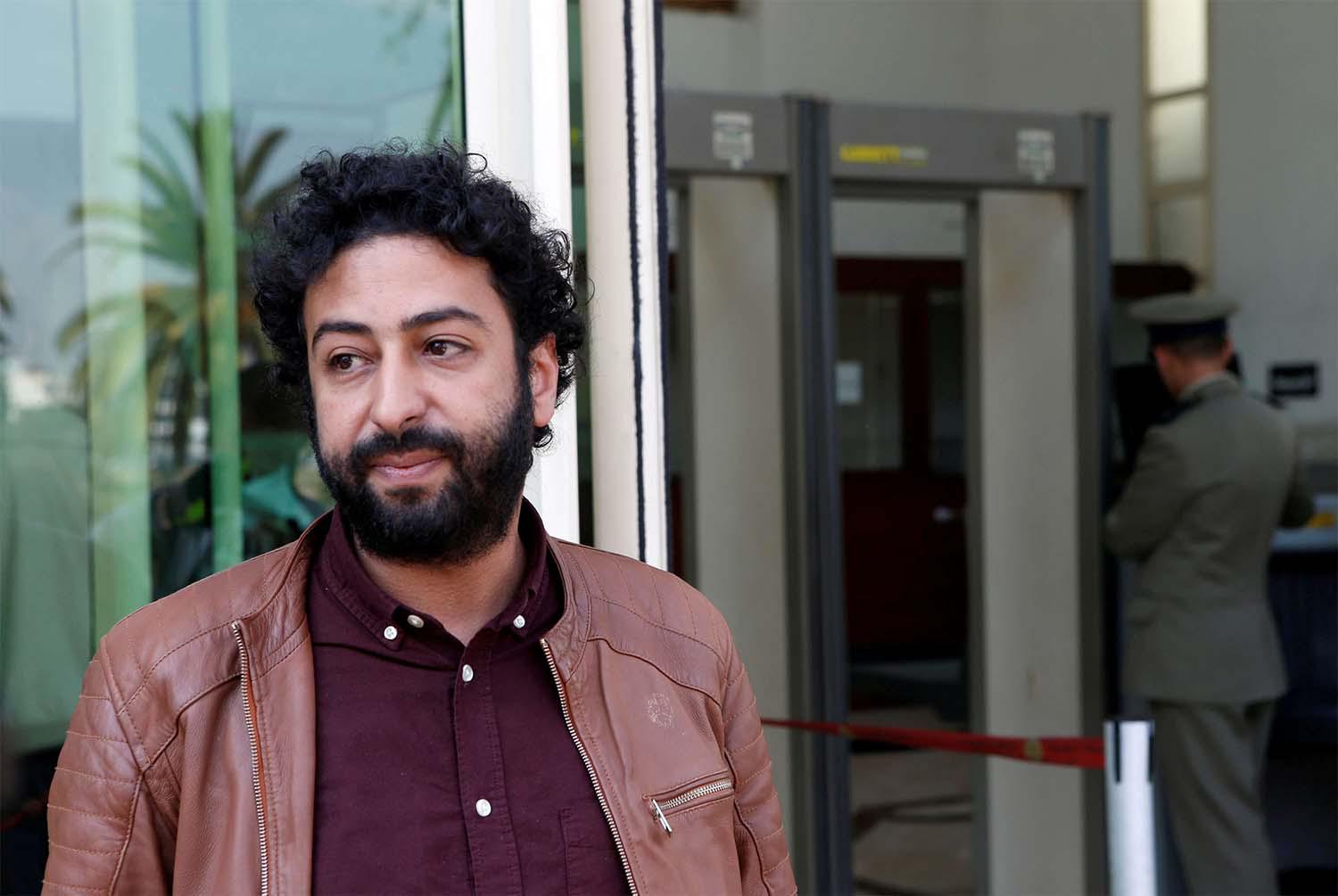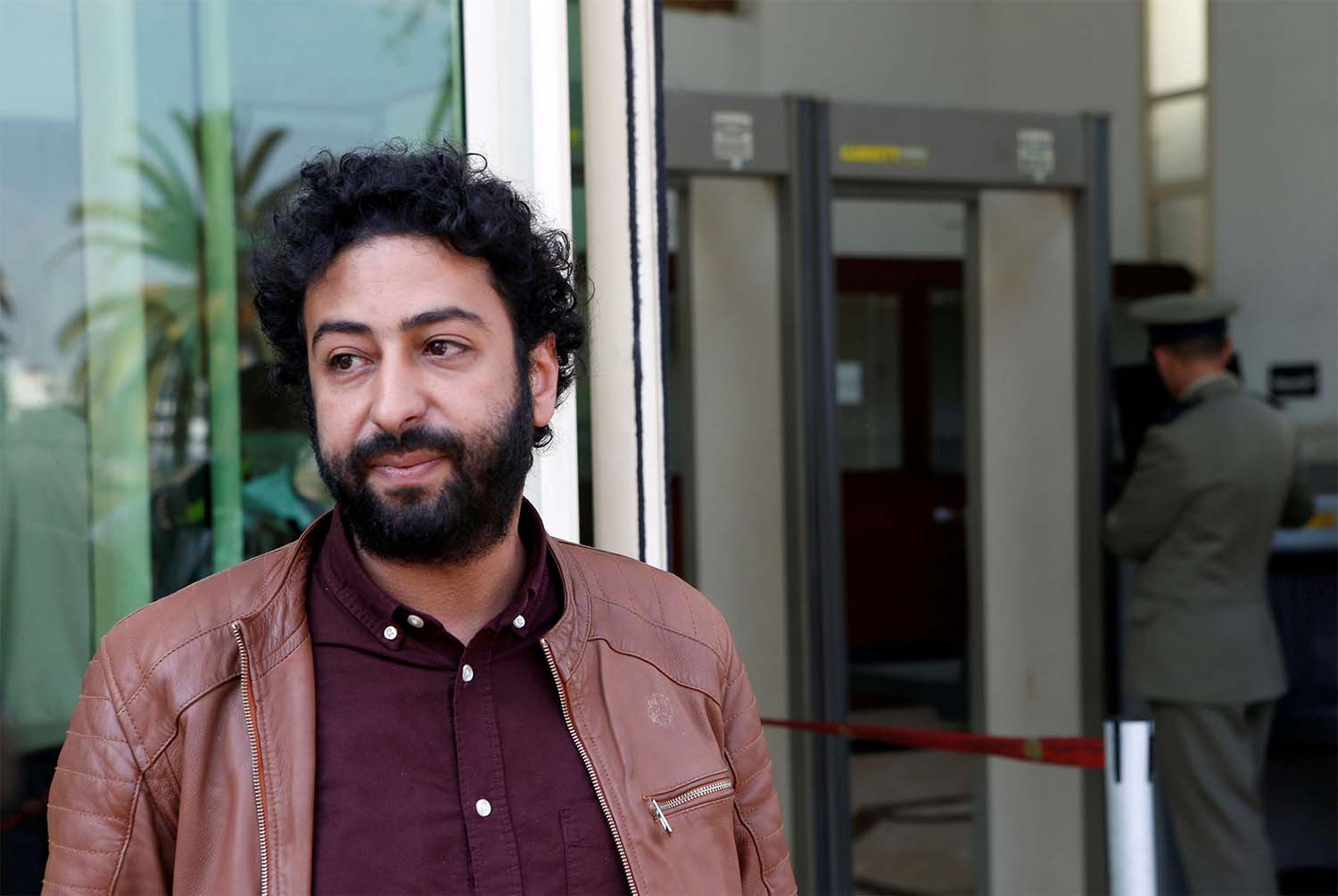Moroccan journalist detained on espionage, rape charges
CASABLANCA - Moroccan journalist Omar Radi was Wednesday placed in pre-trial detention on charges of rape and receiving foreign funds for the purpose of harming "state security", the justice ministry said.
Omar Radi, who works for news website LeDesk, has been transferred to Oukacha prison in the economic capital of Casablanca and his trial will begin on September 22, the ministry said in a statement.
The prosecutor has requested that the investigating judge look into "offences relating to indecent assault with violence and rape" after a "citizen filed a complaint".
The rape victim, who is Radi’s colleague, told Middle East Online that he jumped on her and raped her while she was talking on the phone with her fiancé who lives abroad.
The victim said the rape took place on July 13 at her directors’ house where they were working due to the special circumstances exacerbated by the coronavirus pandemic.
“As a Moroccan citizen, I am counting on the judiciary to bring me justice. It’s a matter of honour,” said the woman.
“Radi ruined my life and my relationship with my fiancé who dumped me,” she said, adding that she was representing many women who had been raped but remained silent.
Radi is also being investigated for receiving funds from foreign parties with the goal of harming internal state security.
“Radi cultivated contacts with agents of foreign countries in order to undermine Morocco's diplomatic position,” the statement said.
The investigation into Radi's purported receipt of foreign funds began in late June, the day after a report by Amnesty International alleged that Pegasus software developed by Israeli security firm NSO Group was used to hack Radi's mobile phone.
Moroccan authorities denounced Amnesty's “baseless” accusation, demanding the rights group provide scientific evidence to prove its claims.
Minister of Foreign Affairs Nasser Bourita told La Tribune de Geneve in mid-July that Amnesty's spying charges against Morocco were unfounded.
Bourita accused the London-based rights group of failing its duty of neutrality and objectivity.
“Far from being in a dynamic of dialogue, they carried out a real media campaign on the basis of unfounded accusations, misleading several media and journalists," said Bourita.
“It’s huge and totally wrong. We unequivocally reject these accusations,” he added.
An Israeli court has dismissed on July 13 Amnesty's legal bid to stop NSO Group from exporting surveillance software, saying the NGO did not prove NSO's technology had been used to spy on its members.
A Tel Aviv District Court judge found Amnesty did not present evidence to back up the claim that there had been an attempt to spy by hacking a human rights activist's phone, nor that such an attempt had been carried out by NSO, according to a court document.
Bourita stressed that the Tel Aviv court’s verdict justified Amnesty’s failure to prove that the software was being used by their government.
Radi said that he had never been and never would be in the service of a foreign power.
“I am neither a spy nor in the pay of another country as an agent,” he said.
In March, Radi was sentenced to a four-month suspended prison sentence for criticising a judge in a message posted on Twitter.
A coalition of nine human rights and media organisations, including Reporters Without Borders, on Wednesday called on Moroccan authorities to stop intimidating Radi.
It called on the United Nations and the US Department of State to strongly denounce the arbitrary summons and false accusations levelled against him by authorities.
But the rape victim rejected the organisations’ claim.
“They are trying to politicise my case, which I categorically reject. Radi raped me and destroyed my life,” she told Middle East Online.



